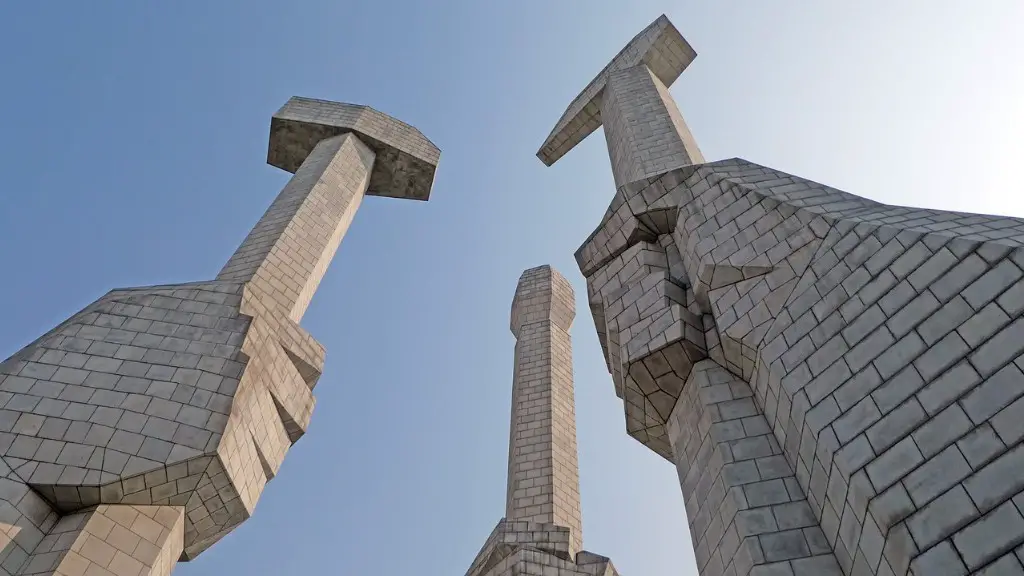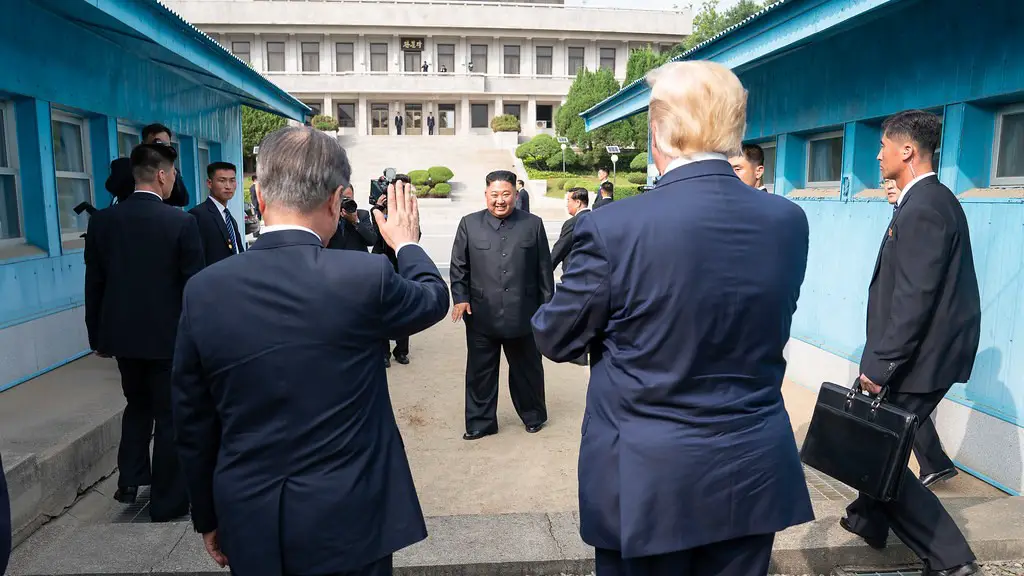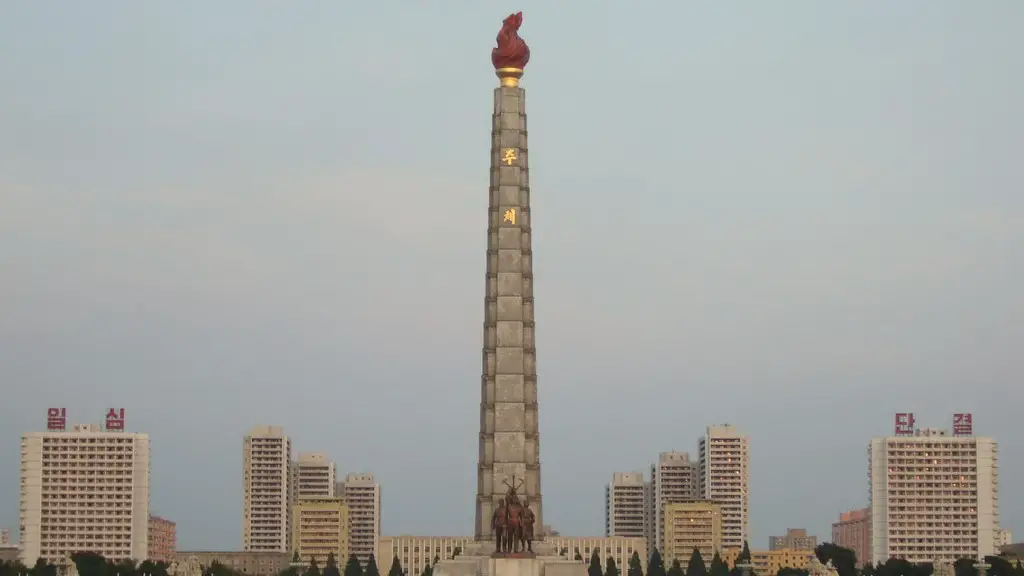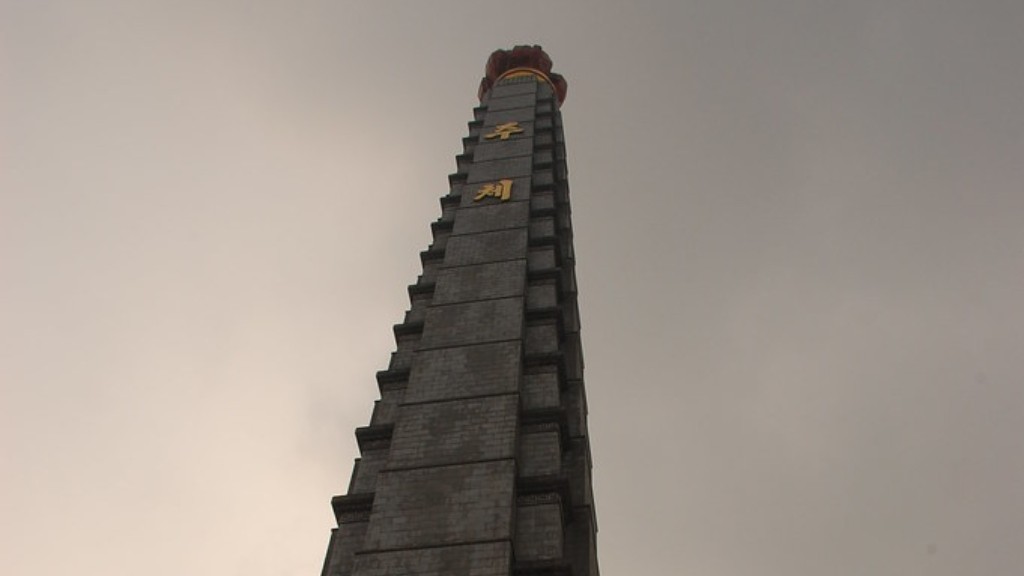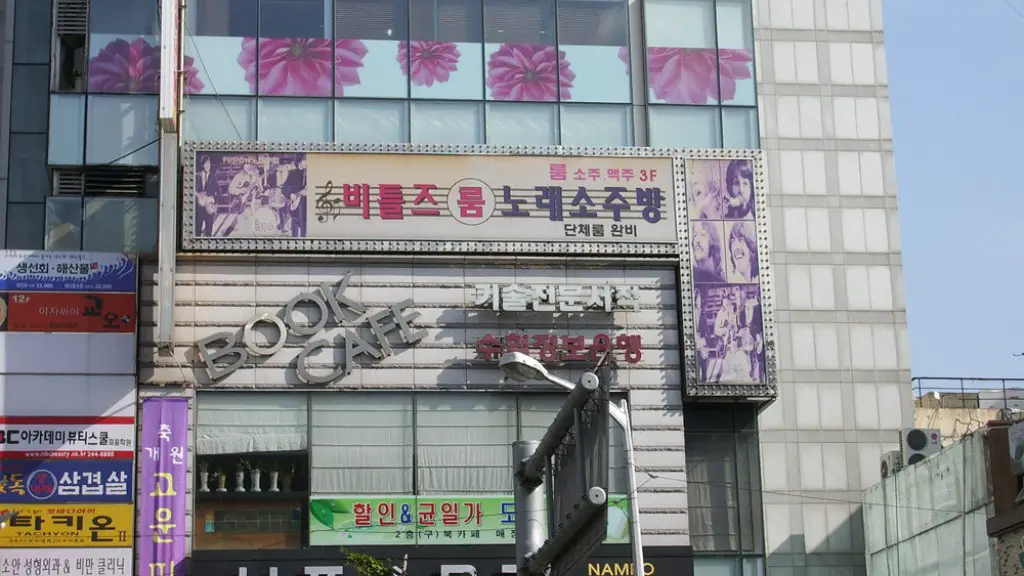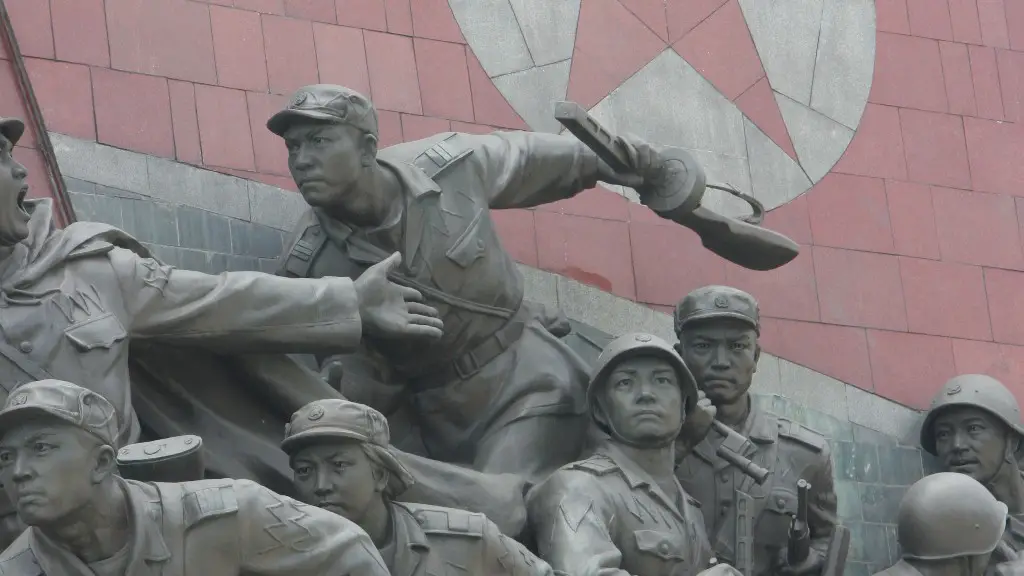Kim’s Origins
Kim Jong-un is the current dictator and head of the Korean Central Committee, the governing body of North Korea. He is the son and grandson of the previous two leaders of the country, Kim Il-sung and Kim Jong-il. Kim Jong-un was born in 1984 and took over the leadership of North Korea in 2011 after the death of his father, Kim Jong-il. But his family is no stranger to power and controversy.
Kim Il-sung was the first leader of North Korea and is credited with transforming the country after World War II. He assumed control of North Korea in 1948 and held the position of “Eternal President” until his death in 1994. He was succeeded by his son, Kim Jong-il, who had acted as his father’s policy advisor for the preceding two decades. Kim Jong-il, who died in 2011, extended his father’s rule and began to centralize the nation’s economy and political system.
Like his father, Kim Jong-un has been able to maintain control of North Korea largely through the country’s cult of personality. Kim and his family are regularly praised in state media and North Korean citizens are expected to show their loyalty and devotion to the regime. The North Korean government also employs a range of methods to limit public access to information, including internet censorship and the restriction of foreign media.
Although Kim Jong-un’s rule has been largely uncontested and he maintains his grip on the country’s leadership, the problems facing North Korea are only growing. The country is currently facing an economic crisis amidst international sanctions and a lack of foreign investment.
Due to its isolation, North Korea is one of the least developed countries in the world. It is estimated that nearly 40 percent of the population lives in poverty, and malnutrition is a persistent problem in the country. Human rights violations, including torture, forced labor, and political imprisonment, are also widespread in the country, and it is estimated that an estimated 120,000 to 200,000 people are held in prison camps.
Relations With The US and Its Neighbours
Kim Jong-un’s rule of North Korea has been marked by a renewed focus on relations with the United States and its neighbours. The two countries have engaged in a series of summits and negotiations in an effort to find a political solution to the North Korean nuclear crisis, but progress has been slow.
North Korea also maintains a tense relationship with its regional neighbours, including South Korea and Japan. The two countries are still technically at war, and ongoing military tensions remain high. North Korea continues to launch military exercises and test various weapons, while South Korea and Japan continue to strengthen their own defences.
In addition to its strained relationship with its neighbours, North Korea has also been firm in its opposition to globalisation and the spread of western values. The regime has maintained a hardline stance on international affairs and is highly critical of foreign powers, particularly the United States and its allies. In recent years, North Korea has sought closer relations with Russia and China, both of which have backed the regime’s nuclear ambitions.
Under Kim Jong-un, North Korea has become more active in the international arena and has developed a nuclear weapons program. In October of 2017, the regime conducted its first successful test of an intercontinental ballistic missile, and Kim has threatened to use nuclear weapons if his country is threatened.
Despite these threatening actions, Kim Jong-un has also sought to improve the lives of North Koreans through economic development and increased access to foreign media and information. The regime has allowed some forms of private enterprise, and the population has gained access to television, radio and other forms of media from abroad. North Korea has also opened up its economy to foreign investment, and Kim Jong-un has sought to reform the economy through the introduction of free-market reforms.
Kim’s Reputation
While Kim Jong-un is associated with improving the country’s economic wellbeing, he is also seen as a brutal dictator who will not hesitate to use violence to quash dissent. North Korea remains a closed society that severely restricts its citizens’ access to the outside world and represses any form of political opposition. Kim has also been accused of human rights abuses, including the use of torture, arbitrary detention, and execution.
In spite of this, Kim’s reputation has also been subject to vastly different interpretations. For some, the North Korean leader is portrayed as a strong leader who is willing to stand up to foreign powers and defend the country’s sovereignty. For others, he is demonized as a cruel and oppressive dictator who is bent on maintaining absolute control over his people and his country.
Since coming to power, Kim has sought to present himself as a modern leader who is committed to improving the lives of his people and who is open to dialogue and cooperation with other countries. However, Kim has also been criticized for not doing enough to address the country’s many problems and for not living up to his promises of reform and economic development.
Kim’s rule has been characterized by a mix of military strength and economic uncertainty. In recent years, Kim has increased the country’s defense budget, but the country’s economy remains weak and largely isolated from the international community.
It remains to be seen what the future holds for North Korea, but one thing is certain: Kim Jong-un is firmly in control and is likely to remain so for the foreseeable future.
China’s Influence
The Chinese government has had a significant role to play in North Korea since the country was established in 1948. China was an ally of North Korea during the war, and has continued to provide military and economic support to the country. Over the years, the two countries have become increasingly close, with China providing most of North Korea’s food and fuel imports.
While China has been supportive of the North Korean regime, it has also been reluctantly supportive of international sanctions against the country. As tensions have risen over the years, China has been instrumental in helping to curb North Korea’s nuclear ambitions by limiting economic and trade ties with the country.
China has also sought to protect Kim Jong-un’s regime from the threat of international sanctions. In 2017, China vetoed a US-backed resolution at the United Nations Security Council that sought to increase the pressure on the North Korean regime. China has also sought to reduce tensions between North Korea and the United States by encouraging the two countries to engage in talks to resolve their differences.
China’s influence over North Korea has grown significantly since Kim Jong-un came to power. The two countries have signed joint economic development agreements, and Beijing has worked to bolster Kim’s legitimacy by hosting him for multiple visits.
While China may not be able to control North Korea, it is clear that it will be an important player in any future negotiations over North Korea’s nuclear programme.
The Role of Human Rights
One of the most pressing problems facing North Korea under Kim Jong-un’s rule is human rights abuses. Kim and his regime have been accused of a variety of crimes against humanity, including torture, forced labor, and political imprisonment. Amnesty International estimates that up to 200,000 people may be held in the country’s prison camps.
The issue of human rights has been a major point of contention between the international community and North Korea. Despite its isolated status, North Korea has been subject to international pressure over its treatment of its citizens, and the government has come under increasing scrutiny from the United Nations and other human rights organisations.
While North Korea has been largely unresponsive to this pressure, Kim Jong-un has indicated his willingness to discuss human rights issues with the United Nations. In recent years, the North Korean government has allowed a small number of international human rights organisations to visit the country, although access remains severely restricted.
In spite of its repressive policies and human rights record, North Korea continues to strive for its own version of human rights. While freedoms such as freedom of speech and assembly remain severely restricted, North Korea has introduced a number of reforms that seek to improve the country’s economic development and quality of life.
It remains to be seen whether these reforms will be enough to improve the human rights situation in North Korea, or if the international community will be able to pressure the regime into making more substantial changes.
Sanctions
In response to North Korea’s nuclear program, the United Nations and other countries have imposed numerous economic sanctions on the country in an effort to force the regime to give up its weapons. These sanctions have crippled North Korea’s economy by cutting off access to foreign exports, crippling its manufacturing sector, and cutting off its access to international financial markets.
The sanctions have had a devastating impact on North Korea’s economy and its citizens, who are increasingly dealing with shortages of food, fuel and other necessities. Despite the US-led push for tougher sanctions, North Korea has continued to develop its nuclear program and increased its military exercises.
At the same time, the US has also engaged in direct talks with North Korea. These talks have come close to producing an agreement between the two countries, but have failed to reach a breakthrough. Efforts to restart negotiations have been hampered by North Korea’s refusal to commit to complete denuclearization and the US’ continued insistence on a comprehensive agreement.
It remains to be seen whether the US and North Korea will be able to reach an agreement or if further economic sanctions will be needed to pressure the regime into giving up its nuclear weapons.
International Negotiations
In recent years, Kim Jong-un has sought to engage in international diplomacy and appears to be open to dialogue and cooperation with other countries. The North Korean leader has made trips to China, Russia, and the United States, and held numerous summits in an effort to find a political solution to the country’s nuclear crisis.
The international community has welcomed these talks, but progress has been slow. North Korea has yet to commit to complete denuclearization and the US has been reluctant to offer concessions and relief from economic sanctions until North Korea takes significant steps towards denuclearization.
It remains to be seen what the future holds for North Korea, but it is clear that negotiations will be an important part of the process. The international community continues to call for North Korea to respect human rights, improve living conditions and give up its nuclear weapons. Whether the regime will respond positively to these calls is yet to be seen.
